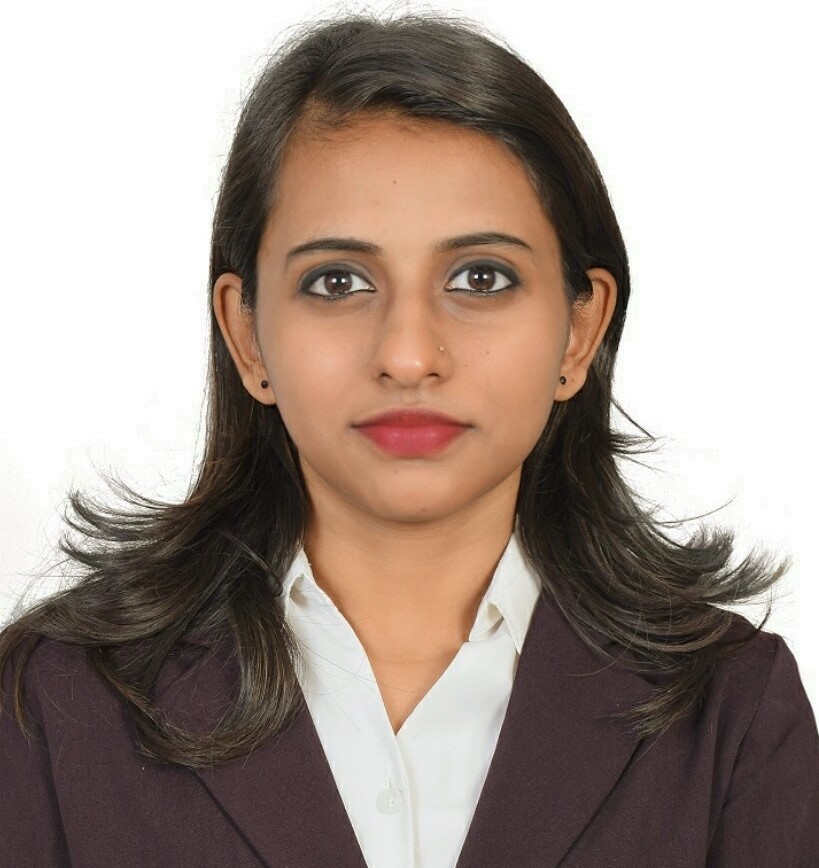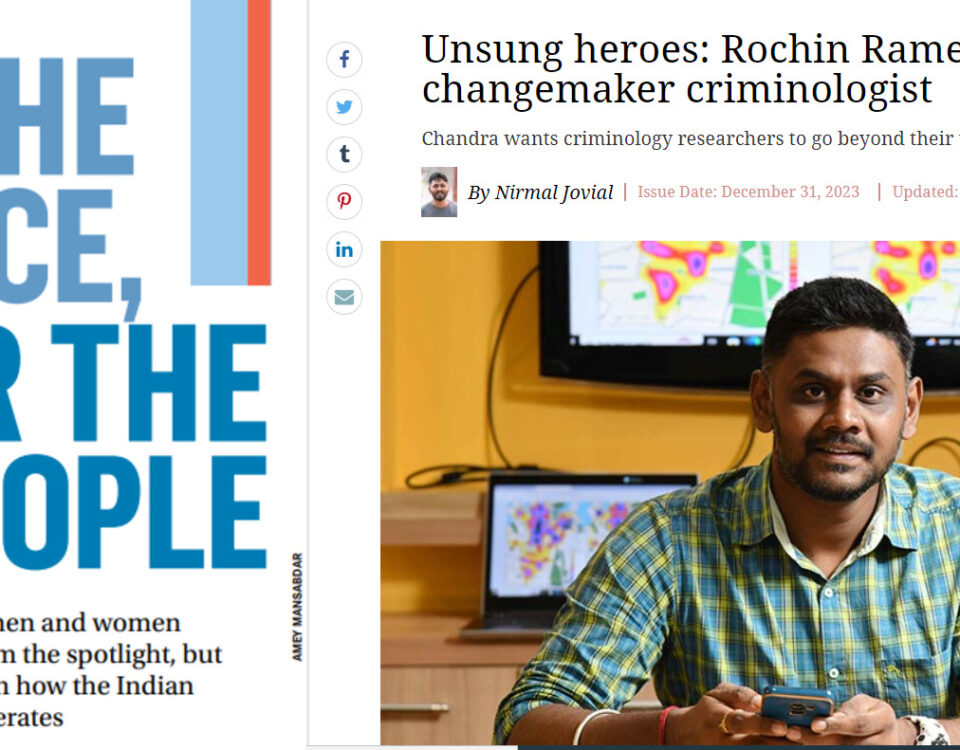‘Tackling financial fraud requires specialised skills’

Death penalty shrinking budget for crime prevention programs, says policy paper
October 21, 2018
Why does India need evidence-based policies more than ever?
January 11, 2019
Devaki Naik. Photo: Special Arrangement
RAAGHAVI SENTHIL INTERVIEWS DEVAKI NAIK | December 09,2018
In an interview to CCPP, Devaki Naik, a Mumbai-based Financial Criminologist spoke about the need for actionable education and research in criminology, and the importance of strengthening partnerships between financial crime specialists and policy-makers.
You have been exploring an off-beat career path which has rarely been ventured into by criminology graduates so far. What got you interested in Criminology and especially, financial fraud in the first place?
From drug rackets to white collar exposés, the nuances of crime and criminology have always been a regular topic of discussion at home, as my father worked with the Narcotics Control Bureau and later served as an Investigative Specialist in banking sector.
Later in my life, I got an opportunity to work in Pune with Mr. Mayur Joshi, who was part of the interdisciplinary committee on investigation for the Satyam Scam – one of India’s biggest corporate accounting frauds. From Mr. Joshi and his team I learned the nitty-gritty of forensic accounting. They taught me what to look at when presented with the balance sheet of a company.
Mr. Joshi had, for long, been egging me on to start a practice of my own, but I never took his suggestions seriously. However, one day, as I discussed the prospects of my future employment with my father, he suggested the same and that turned out to be the push I needed.
As a ‘Criminology-graduate’ with a specialization in Investigation of Economic Crimes, I had gathered solid theoretical knowledge, and my experience of working with Deloitte Mumbai – as part of their core investigation team – had given me a fair idea of the actual workings of a forensic accountant.
Thus began my journey as an independent Forensic Accounting Criminologist. I have recently set up my independent practice in Mumbai which focuses on areas of due diligence, risk management and forensic audit investigations. In the long run, I aim to curb the menace of white collar crimes in India. I realize it’s an uphill task but I strive to tackle it patiently – one financial fraud at a time!
What does the day-to-day life of a financial criminologist look like?
It’s only been a few weeks since I’ve started out as an independent financial criminologist and have faced some teething issues. But apart from that, the journey is a phenomenal learning experience.
As a financial criminologist, my role is to investigate frauds occurring in banks and other financial firms. Identifying the main perpetrator, discovering the motive of the fraudster, quantifying the losses and even helping with the documentation of evidence is what I do.
Fearing reputational damage, organizations often prefer to keep these investigations confidential and that’s why we’re never allowed to disclose names or other details of the investigation.
I am also required to work with law enforcement agencies as part of my job. Once they arrest a perpetrator, it is my responsibility to help them gather circumstantial documentary evidence which can be produced in the court. A final report prepared by a ‘Forensic Accounting Criminologist’ is often produced in court as a form of evidence and hence the use of the term “Forensic”.
The way it works with our profession, is that every case is different. And we have to use different approach of investigation while dealing with financial frauds – due to the complexity of these crimes.
Time is crucial for us. Because we deal with a lot of confidential and sensitive data, clients often want us to deliver our findings as early as possible. So managing my time is a major challenge. But I like what I do and hence those sleepless nights are oddly satisfying.
It is a common knowledge that criminology is a far more lucrative career choice abroad. Despite having the opportunity to lead a professional career in the US after completing your Bachelors’ degree from Jay John College of Criminal Justice, New York., what made you to come back?
My decision to return to India after completing my graduation from John Jay College, New York, was met with a lot of criticism. Most people thought I was a fool to give up on the opportunity to work and stay in New York City. But I had made up my mind to return to Mumbai and there was no turning back. The concept of brain drain was deeply rooted in my mind ever since a very young age. I always wanted to be of use to my own country. I wanted to use my education and acumen for the betterment of my own country.
Where has the criminology curriculum in India failed to promote professional opportunities in financial risk management?
Our country has only a handful of educational institutions which offer courses pertaining to investigation of financial crimes. But unfortunately, most of them focus on dealing with the subject from a purely theoretical angle. The teaching community is seldom equipped to engage with students on discussions regarding current scenario in the financial realm. This breeds students who may be able to define ‘white-collar crime’ but may have ‘no idea’ what it really means.
Moreover, rapid changes are occurring in the financial world in terms of compliance requirements, government regulations, modifications in banking norms and so on. Educational curriculum often fail to keep up with these changes. As a result, students are often taught obscure and outdated laws or theories which have no practical use in the real world.
Also, criminology curriculum is so vast that students wanting to gain a deeper knowledge of financial frauds are often discouraged to pursue their interest. It would be more logical if Criminology courses are offered in different tracks, with one track specifically devoted to Financial Criminology. That way, students from quantitative backgrounds will not have to study certain modules – in addition to their core subjects – which do not align with their interests. If we introduce such a tailor-made scheme, students can harness specific skills, make themselves industry-ready and more importantly, pursue research in financial crimes.
Is it reasonable to say that the absence of expertise on economic crimes is discouraging substantive research at the MPhil and PhD levels?
Yes, I quite agree with you on this. There certainly is a lack of guidance and resources for young criminology students wishing to pursue Forensic Accounting. Because forensic accounting is a niche concept in India, there is limited awareness among educational institutes on investing in infrastructure that cultivates and nurtures the academic interests of students in financial fraud management and other white collar crimes.
Even while making the decision of going to New York for graduation in Forensic Accounting, I faced numerous questions and countless hesitations – but had no real guidance because no one I know had ever done something similar and hence family, friends, and even the academic counsellor I consulted had limited wisdom to offer.
It has been observed that the subject of financial crimes is not only vast but also very fluid in nature i.e. there are constant changes occurring in the modus operandi of fraudsters. About a decade ago, signature forgery led to a lot of bank transaction frauds; a few years after, identity theft in the form of credit/debit card mishaps was trending; today financial frauds are committed using artificial intelligence, and the global financial centers are discussing frauds committed by robots. My point being, academicians are not equipped enough to stay updated with this rapidly changing face of financial crimes. Students often come across questions which may not be adequately answered, leading to their discouragement to further pursue their interest in the field of economic crimes.
In what ways can this knowledge gap be filled?
As the old adage goes, be the change you wish to see. Starting May 2019, I plan to offer opportunities to students to help them get a feel of the workings of financial sector as well as provide them guidance for research projects. I believe knowledge is for sharing and if a student can benefit from my experience, I will be extremely happy. There is a need for criminology graduates to think out of the box and carve their own niche in their chosen fields. Only then can criminology flourish and be a subject of choice for young students.
How can a financial criminologist support government’s fraud prevention efforts?
Neither government nor financial criminologist can work in isolation, if either of them wants to tackle the menace of financial frauds. Today, increasing number of crimes are committed using technology in various forms. Collection of evidence, investigation and analysis of these crimes is getting extremely difficult as it requires very specific skills. Law enforcement officers may not always be equipped with right skill sets to deal with such cases. That is when a financial criminologist comes into the picture and can be very useful because of his field experience. The financial world demands that in order to mitigate frauds, one needs to be constantly oriented and re-oriented with new skills to stay abreast with latest ‘modus operandi’ used by fraudsters. And this training can be provided by a financial criminologist.
Moreover, in order to combat fraudulent acts, financial criminologists, law enforcement officers and even governments need to be more vigilant and proactive.
In the light of recent PNB scam that shook the whole nation, what are the mechanisms you think the banking sector must have in place in order to prevent such blunders?
Awareness about bank frauds and possible consequences of it must be deeply ingrained in bank employees. A strong sense of ethics, if imbibed well, can go a long way in protecting an organization from internal misconduct as well as external fraudulent behavior. It is incorrect to say that banks do not have the required mechanism to tackle frauds, but often times, rules are deliberately brushed under the carpet resulting in major mismanagement.





